NHS at 70: Meet two of the desperate families in Yorkshire who crowdfunded for medical treatment for their poorly children
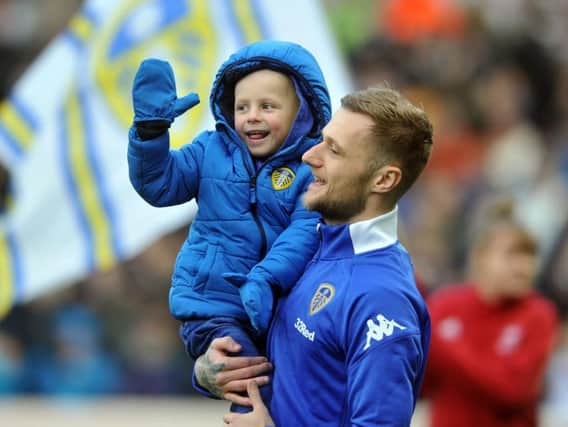

Her son Toby Nye was diagnosed with rare cancer neuroblastoma on his fourth birthday in January 2017. Although initially on a drugs trial that would mean he would get antibody therapy on the NHS, he needed additional treatment that meant he had to withdraw from the initial treatment.
Stacey and her family were faced with raising £200,000 to pay for the therapy, which was not routinely available on the health service, themselves. “We are a very close family and straight away we said we will fundraise,” the 31-year-old from Osmondthorpe, Leeds, says.
Advertisement
Hide AdAdvertisement
Hide Ad“We said we would do whatever we needed to do to get the money. We never thought for one minute that we wouldn’t try because Toby needed it. We had to do what we needed to do.”
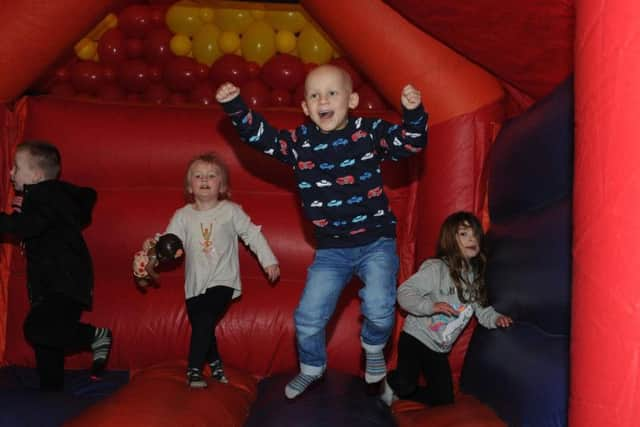

Fiercely determined her child would have the treatment, Stacey opened up about her plight to the world, launching a fundraising appeal last June and reaching out to others for donations.
At home, between visits to see Leeds United fan Toby in hospital, family members discussed remortgaging their homes and selling everything they owned to help.
“It’s not a nice feeling,” Stacey says. “You feel like you are asking other people to pay for your child and that’s your job as a parent.
Advertisement
Hide AdAdvertisement
Hide Ad"I am a nurse myself and Toby thinks that I can fix everything so it was difficult for me as well. We are quite a private family and we had to tell the world about our situation to get what we needed for our son. I feel like I had no choice. I had to do what I needed to do.”
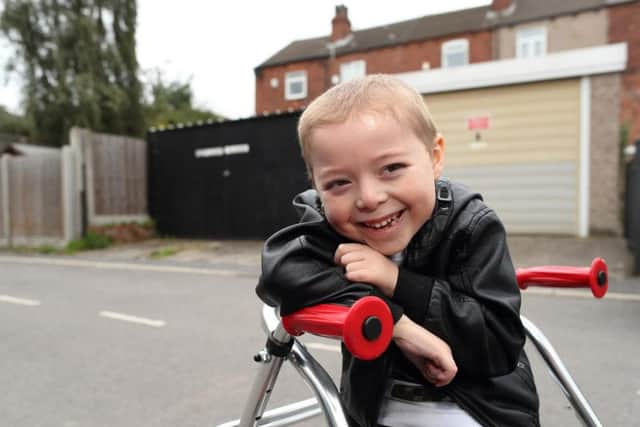

Donations were slow at first but Leeds United stepped in last October, and support from players, club staff and fans helped push the family over the line.
Toby began the antibody treatment with drug dinutuximab beta at Leeds General Infirmary in January and in March, early testing showed his bone marrow was clear of cancer for the first time since his diagnosis.
Now, after Toby, who started school at Victoria Primary Academy in East Leeds earlier this year, finished his final round of the treatment, the family face an anxious wait for tests this month to find out whether he is officially cancer free.
Advertisement
Hide AdAdvertisement
Hide AdDescribing her son as a “different child, a normal five-year-old now”, Miss Worsley explains: “Without the treatment, Toby wouldn’t have been where he is today. That treatment obviously works.
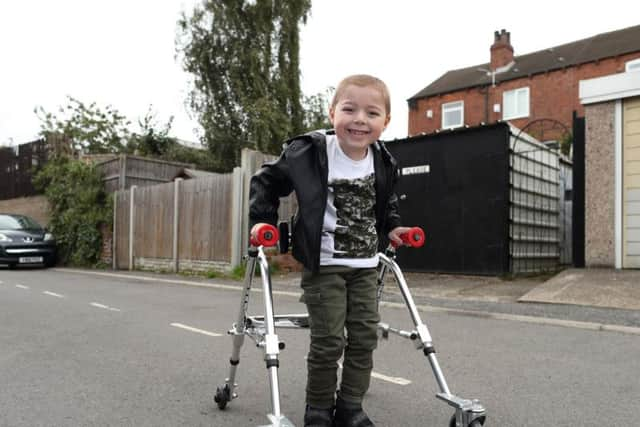

"Before, he still had cancerous cells in his bone marrow and a couple of rounds in [to the treatment], his bone marrow was clear. If we hadn’t have done what we did, he might not have been here today.”
Adding that she feels “let down” by the system, she says: “Any treatment for a child should be available. I don’t think any child should have to do without.”
Sarah Craven is one of many people who can sympathise with her plight, having dedicated years to fundraising for treatment for her son Alex, who was diagnosed with Spastic Diplegic Cerebral Palsy at just nine months old.
Advertisement
Hide AdAdvertisement
Hide AdShe, and husband Jonathan, were told Alex, now seven, would struggle to walk and would likely spend his life using a wheelchair.
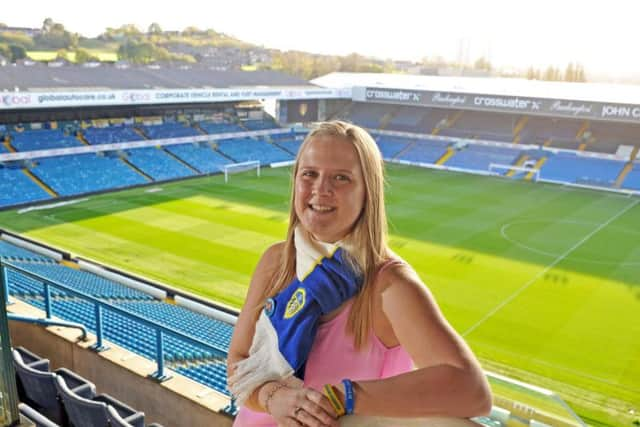

They were told, Sarah says, that he could have physiotherapy and occupational therapy on the NHS and if he needed specialist equipment, the health service would provide it.
But as she began to research the condition online, she came across a range of other therapies and treatments, that she claims her family were never offered nor told about.
“Me being me, and a lot of parents are the same, I wasn’t prepared to just accept that,” she says. “As a parent, you always want to do everything you can for your child.”
Advertisement
Hide AdAdvertisement
Hide AdIn the years that followed, the Craven family, from Glasshoughton near Castleford, turned to crowdfunding and offline fundraising events to pull together thousands of pounds for therapy, and later surgery, for Alex.
“We had to go through all that to get the best for our child for him to have a better future. I know that the NHS have a difficult time choosing what to fund and what not to and they can’t pay for everyone but sometimes I think they do get their priorities wrong.”
The family’s fundraising journey began when Alex was 18 months old, after they discovered and researched Advanced Biomechanical Rehabilitation therapy - a programme of exercises, massage and compressions designed to improve muscle strength.
They attended information and training sessions in Scotland to learn how to administer the therapy, which Mrs Craven gave to Alex for up to four hours per day. At a cost of £6,000 per year, the couple felt they had no choice but to ask the community for support to fund the therapy.
Advertisement
Hide AdAdvertisement
Hide Ad“It was really difficult,” Sarah says. I was never a fan of wanting to fundraise which is why we paid for the first session ourselves. I didn’t know how to go about it.
"If we could have afforded to do it ourselves that is what I wanted, but it was just impossible. I wasn’t working so we only had my husband’s wage. We had no choice but to start fundraising.”
They continued with the therapy for three years, watching Alex reach milestones including sitting up on his own and holding his head upright - neither of which he could do prior to the treatment.
But it became increasingly difficult to build it into their day once he started school, and convinced Alex was now strong enough, the family began to research Selective Dorsal Rhizotomy surgery, a potentially life-changing operation to reduce muscle stiffness.
Advertisement
Hide AdAdvertisement
Hide AdSpecialists told them that he would not be a suitable candidate for the procedure in the UK, fearing he did not have enough muscle strength. Heartbroken and refusing to give in, the parents contacted a surgeon in America to apply for the procedure, optimistic it could help him to kneel, stand and put weight on his legs - everyday movements their son had never been able to do.
After less than 12 weeks, they were told he had accepted and set about raising £60,000 to cover the cost of the surgery, an associated procedure to lengthen his tendons as well flights and accommodation ready for the operation date, which was set for July last year. It was only in the weeks before that they reached their target.
Sarah, who looked into taking out bank loans to cover costs if they could not raise the cash, says she will be eternally grateful for those who helped. Progress since the operation has been steady for Alex, but nearly a year on, he can stand up, his feet are flat, his legs are straight and he has taken his first steps in his walker, something he has never done before.
“We only just got there," she says. "But there was no way that we would have ever missed that operation and not gone because we didn’t have the money.”
Hope for funding
Advertisement
Hide AdAdvertisement
Hide AdThe procedure undergone by Alex Craven in America is currently going through NHS England’s Commissioning through Evaluation Programme, which enables a limited number of patients to access treatments with “significant promise” that are currently not funded by the NHS.
A total of 140 patients have undergone the surgery and a final report is expected in the autumn.
The National Institute for Health and Care Excellence has been asked to produce guidance on using dinutuximab beta antibody therapy in the NHS in England to treat high-risk neuroblastoma, the condition suffered by Toby. In May, it said there was “substantial uncertainty” about its long-term benefits and whether it was cost effective.